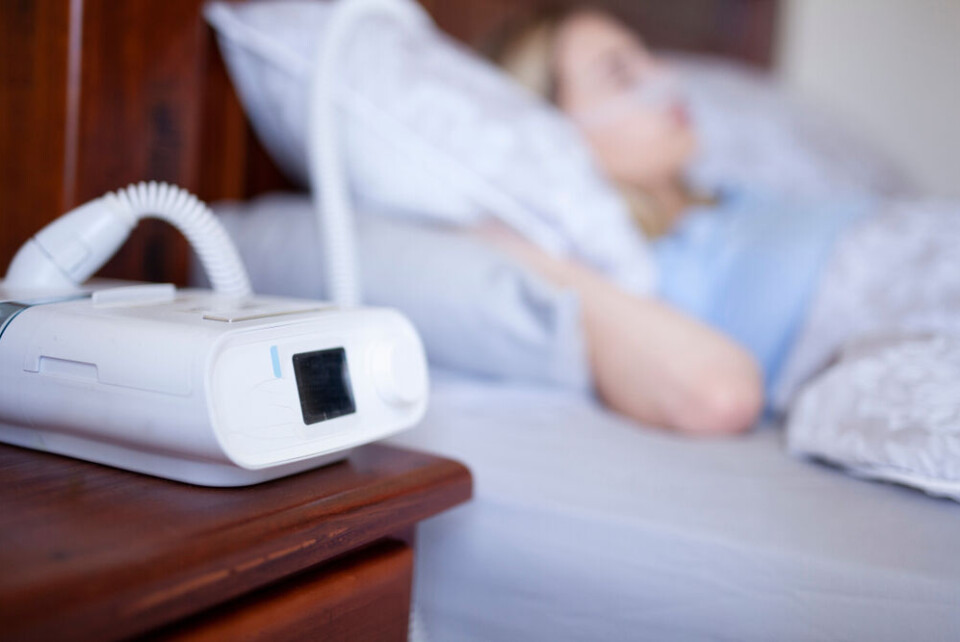-
Occitanie copper phase-out ramps up – how it will affect residents
There are some simple steps you can take to prepare for the switchoff
-
Which cars are stolen the most in France and why?
Perhaps surprisingly, the higher-end vehicles are not the most targeted
-
Several wolf sightings in centre of Frejus, Var
Rules have been relaxed around shooting wolves that threaten livestock
Cancer-risk Philips ventilators ‘not recalled fast enough’ in France
Only 7% of the faulty home-use machines have been replaced since they were recalled last June, the French medicines authority has said

The French medicines authority is urging electronics brand Philips to replace its faulty at-home ventilators more quickly, as it emerges that only 7% have been replaced since a recall in June. There are currently 370,000 in use in France.
The Dutch company recalled its home-use ventilators worldwide in June 2021.
The machines are also sometimes called CPAP (continuous positive airway pressure) machines. Philips also make BiPAP machines (bilevel positive airway pressure), which were included in the recall as well.
The machines are used by people who suffer from sleep apnea – a condition that causes people to stop breathing temporarily while sleeping – chronic bronchitis, or similar complaints.
Why were the machines recalled?
Philips said that the recall was due to a sound-absorbing foam (known as ‘sound abatement foam’) in the devices, which, when it begins to degrade, has been found to release organic compounds that can cause irritation, headaches, asthma, and even cancer.
The foam is likely to have started to degrade in devices that are more than three years old, or which are exposed to intense heat or humidity.
The recall was global, and related to all models made before April 26, 2021.
A full list of products and models included in the recall can be found here, and the models specifically affected in Europe, here. Philips has also put together a list of further answers to common questions (in English) at the bottom of this page.
Too slow in France
But now, l’Agence nationale de sécurité du médicament (ANSM) has said that the recall process has been too slow in France. Only 7% of the respirators in use in the country have been satisfactorily replaced, it said.
Philips has pledged to replace all of the machines by the end of this year, but ANSM has said that this is not fast enough.
ANSM said that it would take a “health policing decision” in the next few days, which is likely to include an official request to Philips to ensure a faster replacement schedule.
Dr Caroline Semaille, deputy director-general of ANSM, said: “Today, we know that only 7% of the devices have been replaced by Philips. This situation is not acceptable for all patients who are currently exposed to a Philips device.
“We therefore absolutely want 75% of the devices to have been replaced by June 2022. We also want patients to be clearly informed and we want Philips to provide us with a very precise monthly progress report on the replacement of these devices.”
Should the machines still be used in the meantime?
In France, lung health specialist group la Société savante de Pneumologie still advises patients to continue using these devices until they are replaced.
The benefit of these ventilators outweighs the risk, the specialists argue.
Philips has also recommended that patients “contact their physician or care provider before making any changes to your prescribed therapy…to determine if the benefit of continuing therapy with the device outweighs the risks identified”.
In a statement, Philips said: “We are treating this matter with the highest possible seriousness, and are working to address this issue as efficiently and thoroughly as possible.
“The company has developed a comprehensive plan to replace the current sound abatement foam with a new material that is not affected by this issue, and has already begun this process.”
Related stories
Supermarket ice creams recalled in France over 'toxic substance' fears
Leclerc and Intermarché recall two cheeses over listeria risk
Study shows a third of people in France have problems with sleep
























